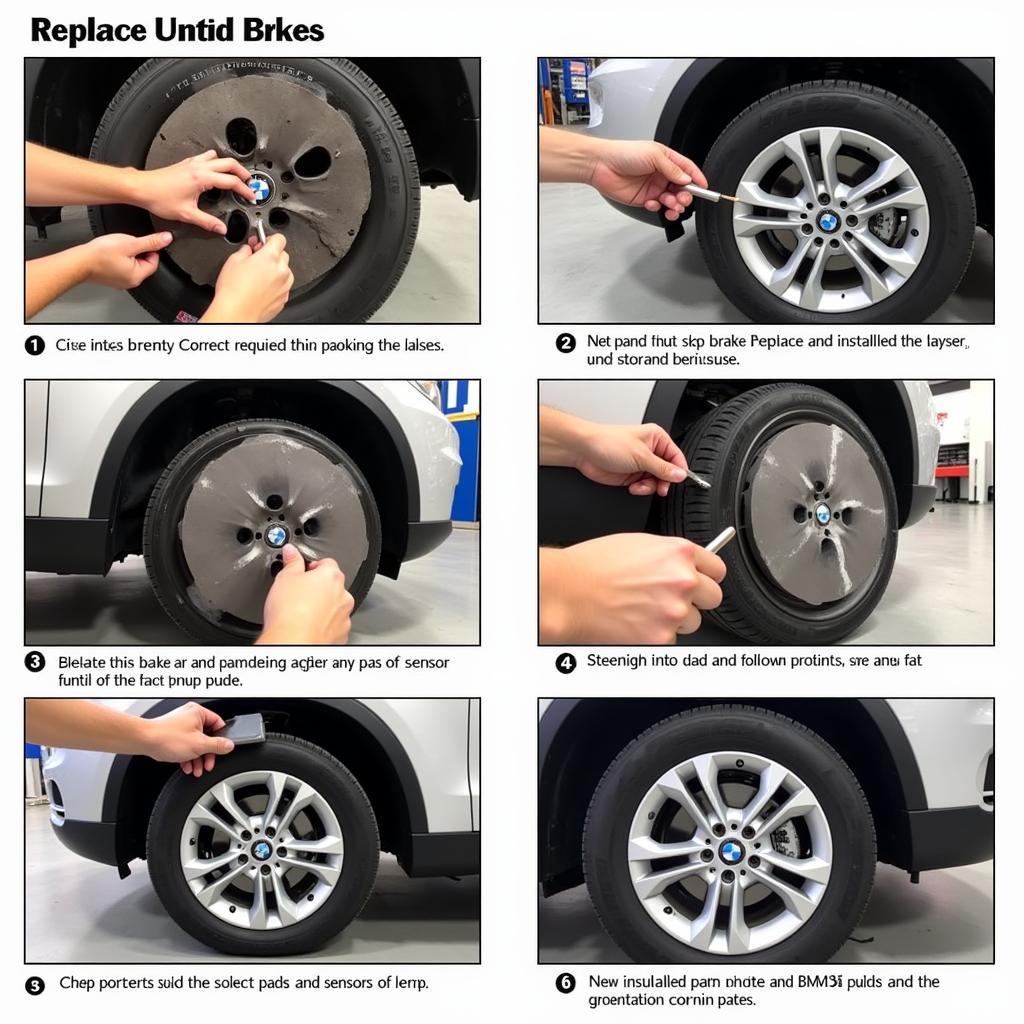A dead battery can leave you stranded. Knowing the signs that your car battery is going bad can save you from unexpected breakdowns and costly repairs. This article will cover the most common indicators of a failing car battery, helping you proactively address the issue before it becomes a major inconvenience.
Recognizing a Dying Car Battery: Common Symptoms
Several symptoms can indicate that your car battery is nearing the end of its life. These range from subtle hints to more obvious signs of trouble. Recognizing these signs can help you avoid unexpected car trouble. One common sign is a slow engine crank. If your engine takes longer than usual to turn over, or if it sounds sluggish, your battery may be struggling to provide enough power. Dim headlights, especially when idling, can also point to a weakening battery.
Another sign is a clicking sound when you turn the key. This clicking often indicates that the battery doesn’t have enough power to engage the starter motor. The check engine light can also illuminate for various reasons, including a failing battery. A swollen or misshapen battery case is a more obvious sign of trouble. Excessive heat can cause the battery’s internal components to degrade and the case to swell. This is a serious issue and requires immediate attention.
Why is My Car Battery Failing? Understanding the Causes
Several factors contribute to a car battery’s demise. Extreme temperatures, both hot and cold, can significantly impact battery performance and lifespan. Cold weather can thicken the battery’s internal fluids, making it harder for the battery to produce power. In contrast, excessive heat can accelerate the chemical reactions within the battery, leading to premature aging. Similar to dead battery in cold weather, leaving your lights on or other electrical accessories running while the engine is off can drain the battery and shorten its lifespan. A faulty charging system can also prevent the battery from receiving a proper charge, leading to a gradual decline in performance. Old age is a natural cause of battery failure. Most car batteries have a lifespan of 3-5 years, and as they age, their ability to hold a charge diminishes. Just as discussed in automotive battery drain, parasitic drains, caused by faulty wiring or malfunctioning electrical components, can slowly drain the battery even when the car is off.
How to Test Your Car Battery at Home
If you suspect your car battery is going bad, you can perform a few simple tests at home. A multimeter can be used to measure the battery’s voltage. A fully charged battery should read around 12.6 volts. A reading below 12.4 volts may indicate a problem. Just like how my car battery keeps going flat can be diagnosed, load testing the battery is another helpful diagnostic method. This involves using a specialized tool to measure the battery’s ability to maintain voltage under a load. This helps determine if the battery can supply enough power to start the engine under stress.
Proactive Measures: Extending Your Battery’s Life
Several proactive measures can help extend the life of your car battery. Regularly cleaning the battery terminals can prevent corrosion, which can interfere with the flow of electricity. Ensuring the charging system is functioning correctly is crucial for maintaining a healthy battery. Limiting short trips can help prevent the battery from constantly being drained and recharged.
“Regular battery maintenance, including cleaning terminals and checking the charging system, can significantly extend the life of your car battery,” says automotive electrical specialist, John Peterson.
When to Replace Your Car Battery
If your car battery exhibits any of the signs mentioned above, or if testing reveals a problem, it’s time to consider a replacement. Continuing to drive with a failing battery can lead to more serious problems, such as damage to the alternator or starter. Similar issues are addressed in kia battery brake warning lights together.
Conclusion
Recognizing the signs that your car battery is going bad can save you from the inconvenience and potential danger of a breakdown. By understanding the causes of battery failure and taking proactive measures, you can extend your battery’s lifespan and ensure reliable starting power for your vehicle. If you experience any of the signs discussed, it’s best to address the issue promptly to avoid further complications, such as those explored in articles like car has electric but wont start. Don’t wait for your battery to completely fail; regular maintenance and timely replacement are key to keeping your car running smoothly.
FAQ
-
How long does a car battery typically last? Most car batteries have a lifespan of 3-5 years.
-
Can extreme temperatures affect battery life? Yes, both extreme heat and cold can shorten a battery’s lifespan.
-
How can I test my car battery at home? You can use a multimeter to measure voltage or a load tester to check its performance under stress.
-
What are some signs of a bad car battery? Signs include slow engine cranking, dim headlights, clicking sounds when starting, and a swollen battery case.
-
How can I extend the life of my car battery? Regularly cleaning terminals, ensuring a proper charging system, and limiting short trips can help.
-
What should I do if I suspect my car battery is bad? Have it tested and replaced if necessary.
-
Can a bad battery cause other car problems? Yes, a failing battery can potentially damage the alternator or starter.


